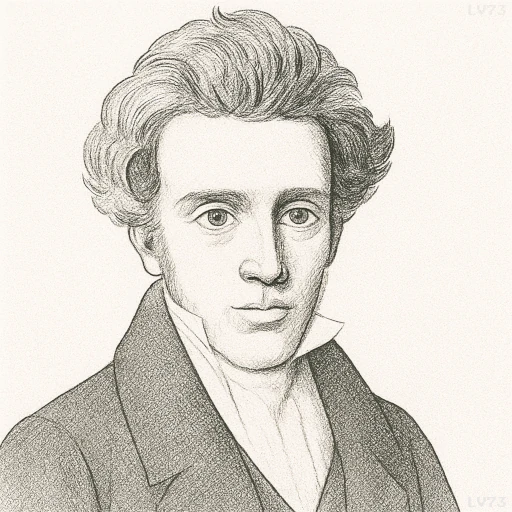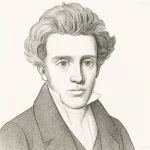“The paradox is really the pathos of intellectual life and just as only great souls are exposed to passions it is only the great thinker who is exposed to what I call paradoxes, which are nothing else than grandiose thoughts in embryo.”

- May 5, 1813 – November 11, 1855
- Danish
- Philosopher, Theologian, Poet, Father of Existentialism
table of contents
Quote
“The paradox is really the pathos of intellectual life and just as only great souls are exposed to passions it is only the great thinker who is exposed to what I call paradoxes, which are nothing else than grandiose thoughts in embryo.”
Explanation
In this quote, Kierkegaard celebrates paradox as a vital and creative force in the life of the mind, likening it to the passions of the soul. Just as deep emotional lives are marked by intensity and contradiction, great intellectual lives are marked by paradox—by grappling with thoughts that seem to oppose themselves. For Kierkegaard, paradoxes are not signs of confusion but indicators of depth, the “embryos” of profound ideas not yet fully formed.
This insight fits squarely within Kierkegaard’s existential and theological framework, where truth often lies in tension: the infinite and the finite, time and eternity, faith and reason. He rejected the tidy systems of thinkers like Hegel, insisting instead that truth is experienced through struggle, not resolved through abstraction. To encounter paradox is to be near something vast and important—truth that resists easy resolution, demanding instead humility and inward engagement.
In modern intellectual and creative life, Kierkegaard’s view remains deeply resonant. Those who explore philosophy, theology, or art frequently confront contradictions that cannot be quickly resolved—questions of meaning, identity, or morality that defy simple answers. Kierkegaard teaches that rather than dismissing such tensions, we should dwell in them, for they are the cradle of profound insight. The presence of paradox signals not weakness, but the unfolding of greatness in thought.
Would you like to share your impressions or related stories about this quote in the comments section?


